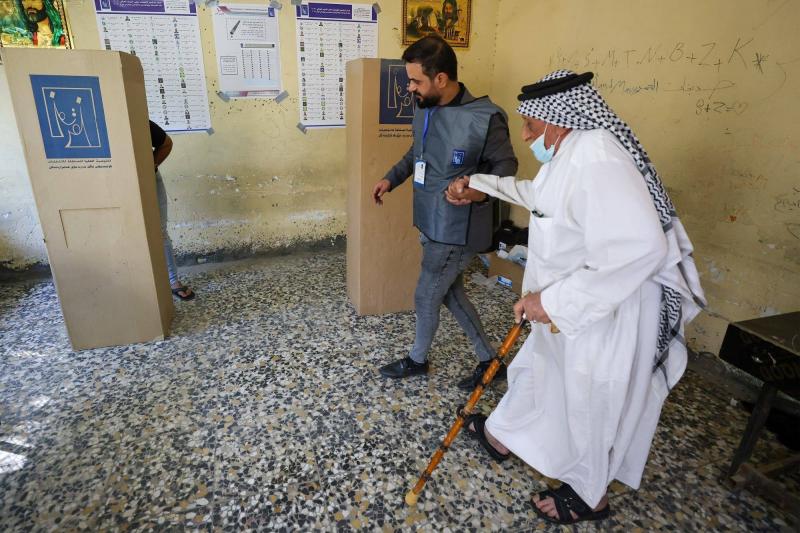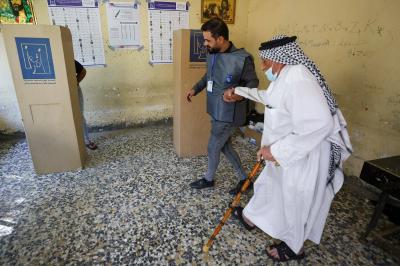As Iraqis await the preliminary results of the parliamentary elections held across the country yesterday, the High Electoral Commission announced on Monday the release of these results in only 10 provinces, with the remaining results expected to be announced by evening.
Jalil Adnan, the head of the Commission, stated in a press conference that "the Commission displayed the initial election results in the provinces of Diyala, Diwaniya, Al-Muthanna, Maysan, Wasit, Duhok, Salah al-Din, Karbala, Najaf, and Erbil." He further explained that "the announcement was made via display screens and also on the Commission's official website."
He added that "complete initial results will be announced later today," indicating that they will be shown on 24 screens in Baghdad and all Iraqi provinces, and will also be published on the Commission's website.
Regarding problematic ballot boxes, he explained that they would be transferred to the national office on Tuesday morning. Earlier in the day, the Commission announced that the initial voter turnout was 41%, noting that this percentage varied among different provinces. The number of voters was reported to be 9 million and 77 thousand, while the number of complaints reached 58. This turnout represents a record low in the fifth election held in Iraq since the fall of Saddam Hussein's regime in 2003.
### Unprecedented Boycott
In this context, some observers, as reported by Agence France-Presse, considered the voter turnout in this early election to be low and indicative of an unprecedented boycott. They noted that this electoral event barely motivated angry voters who are frustrated with chronic corruption, poor public services, and the dominance of certain armed factions, suggesting that most Iraqis have lost hope that this political system can bring about any change to improve their living conditions.
It is noteworthy that in 2018, the voter turnout was 44.52%, according to official figures, a percentage many considered inflated at the time. The current elections were called for several months ahead of their originally scheduled date in 2022, aimed at calming public anger following the popular uprising that erupted in the fall of 2019 against corruption, declining public services, and the economic deterioration in a country rich in oil wealth, as well as the political parties' power-sharing and the influence of certain armed factions.




